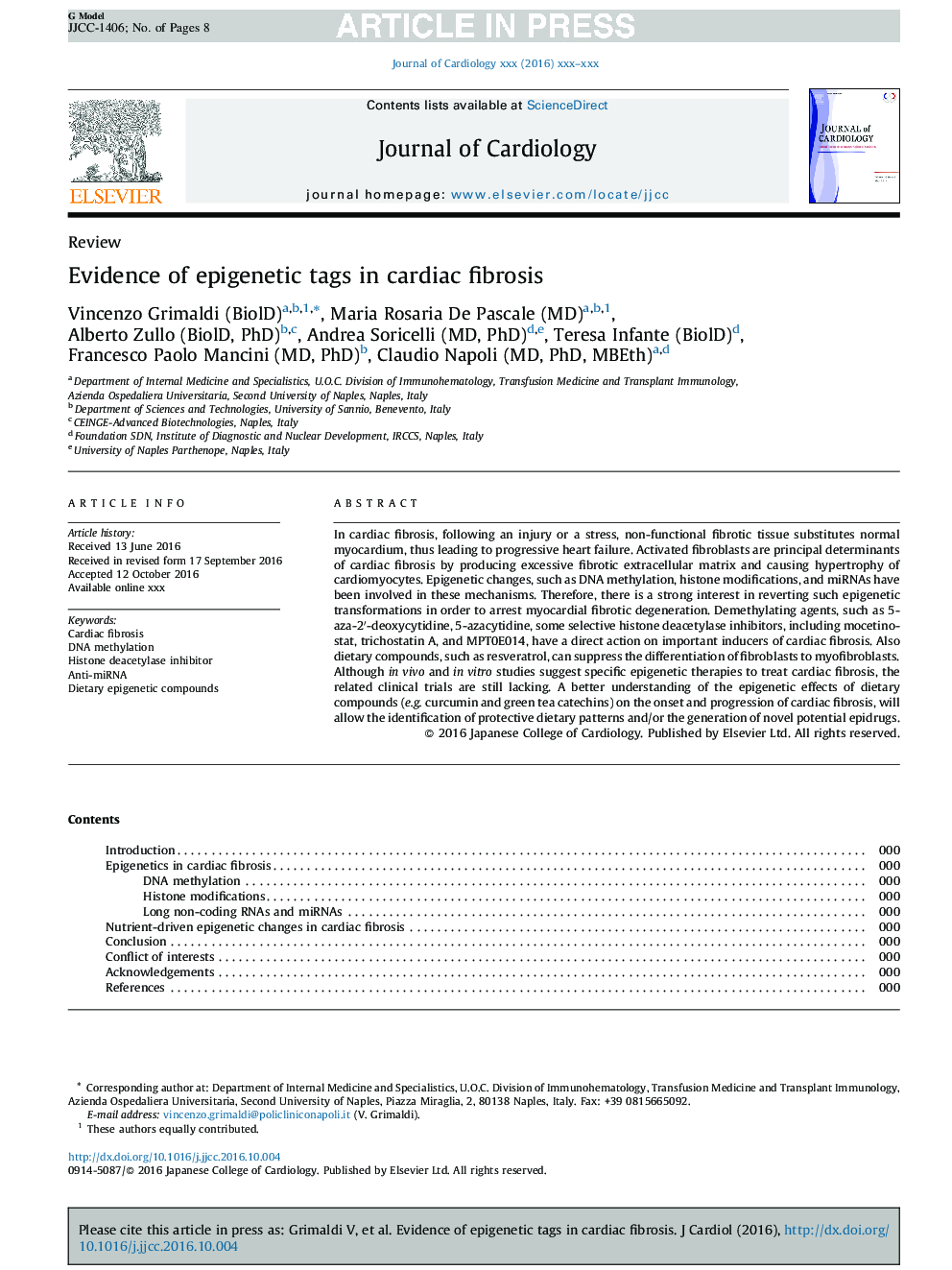| Article ID | Journal | Published Year | Pages | File Type |
|---|---|---|---|---|
| 5614773 | Journal of Cardiology | 2017 | 8 Pages |
Abstract
In cardiac fibrosis, following an injury or a stress, non-functional fibrotic tissue substitutes normal myocardium, thus leading to progressive heart failure. Activated fibroblasts are principal determinants of cardiac fibrosis by producing excessive fibrotic extracellular matrix and causing hypertrophy of cardiomyocytes. Epigenetic changes, such as DNA methylation, histone modifications, and miRNAs have been involved in these mechanisms. Therefore, there is a strong interest in reverting such epigenetic transformations in order to arrest myocardial fibrotic degeneration. Demethylating agents, such as 5-aza-2â²-deoxycytidine, 5-azacytidine, some selective histone deacetylase inhibitors, including mocetinostat, trichostatin A, and MPT0E014, have a direct action on important inducers of cardiac fibrosis. Also dietary compounds, such as resveratrol, can suppress the differentiation of fibroblasts to myofibroblasts. Although in vivo and in vitro studies suggest specific epigenetic therapies to treat cardiac fibrosis, the related clinical trials are still lacking. A better understanding of the epigenetic effects of dietary compounds (e.g. curcumin and green tea catechins) on the onset and progression of cardiac fibrosis, will allow the identification of protective dietary patterns and/or the generation of novel potential epidrugs.
Related Topics
Health Sciences
Medicine and Dentistry
Cardiology and Cardiovascular Medicine
Authors
Vincenzo BiolD, Maria Rosaria MD, Alberto BiolD, PhD, Andrea MD, PhD, Teresa BiolD, Francesco Paolo MD, PhD, Claudio MD, PhD, MBEth,
